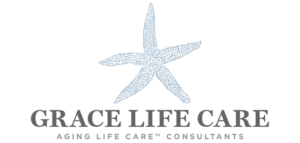Aging Gracefully Cape Cod
Helpful tips for family caregivers
March/April 2012
Here are some tips to handle tough situations.
- 2011 tax breaks for family caregivers
- Dealing with criticism
- Frequent infections in persons with dementia
2011 tax breaks for family caregivers
Before you file your taxes this year, check with your tax specialist to see if these deductions or credits apply to you.
Claiming your loved one as a “dependent.” This requires that he or she
- is related to you or lived with you all year. A “relative” is anyone in your family, including stepparents and in-laws;
- had a gross income of less than $3700 in 2011. “Income” includes Social Security and pension benefits. Also, distributions from retirement savings and investments;
- is supported by you. You paid at least 50% of his or her annual expenses for basics (food, shelter, clothing…).
A dependent can be claimed by only one family member.
Getting a tax credit for dependent care. This applies if
- your loved one cannot care for himself or herself;
- he or she is your dependent or would qualify as your dependent but had too much income or filed a joint return (with a spouse);
- he or she lived with you for more than half the year;
- you need to pay someone to provide care so you can work.
Taking a deduction for medical expenses. You can claim this deduction for
- yourself, your spouse, and your dependents;
- anyone who would have qualified as your dependent but had too much income or filed a joint return.
To be deducted, medical expenses must add up to more than 7.5% of your adjusted gross income (AGI). For example, if your AGI is $40,000, you get a deduction for expenses if they total more than $3000.
Note the IRS definition of “medical expense” includes:
- bandages, glasses, hearing aids
- car mileage related to medical care
- dental care, doctor visits, hospitalization, medications
- home improvements, such as grab bars and ramps
And, if a doctor says they are required for health and safety:
- home care services
- care facility fees
Return to top
Dealing with criticism
 Receiving criticism is never a pleasant experience. Whether it is a sibling griping about how you care for a relative or complaints from the person you are caring for, you may feel suddenly flooded with difficult emotions. Perhaps anger, shame, or confusion.
Receiving criticism is never a pleasant experience. Whether it is a sibling griping about how you care for a relative or complaints from the person you are caring for, you may feel suddenly flooded with difficult emotions. Perhaps anger, shame, or confusion.
We can’t stop others from giving criticism. But we can become wiser about how to deal with it. Try these tips:
- First, pause. Criticism can feel like an attack. To avoid saying something you’ll regret, stall with a remark such as, “Hmmm. That’s an interesting comment.”
- Then, explore. Without denying it or buying into it, get clarification. “Just to be sure I understand, you are concerned about how I ____ ?” or, “You would like me to ____?”
- Consider what may be true. Is Mom’s checkbook actually a mess? Instead of crumbling in shame or being defensive, acknowledge what’s yours. That sets a constructive tone. Say you’ll look into some solutions. Or ask them to join you in finding solutions. Do they have specific suggestions about what could be done differently? (Privately, remind yourself about all that you are doing well, too.)
- Consider what may be theirs. Is your sister’s lashing out really deflecting her shame about doing so little for your mom? Or possibly your dad’s faultfinding represents his frustration with poor health. If so, disregard what’s unfair and let it go. Calmly acknowledge the comment by saying, “Gotcha, Dad. I’ll give that some thought.”
- Maintain appropriate boundaries. Valid criticism focuses on something you’ve done, not on who you are. Meanness, such as being told, “You’re lazy,” is never okay. Set a limit: “I am happy to listen to feedback about how I do things, but not to judgments about me.”
- Turn it into opportunity. Ask the person who is criticizing to help with solutions by sharing or taking on the task himself or herself!
Return to top
Frequent infections in persons with dementia
“Mom was up and down all night, agitated and crying. Turns out, she has another bladder infection!”
“Dad’s in the hospital with pneumonia again.”
Sound familiar? If so, the person you care for may be entering the final stage of his or her dementia. That makes your relative more prone to
- urinary tract infections due to incontinence, incomplete emptying of the bladder, and/or inadequate water intake;
- aspiration pneumonia due to forgetting to chew well and/or losing control of the swallow muscles;
- pressure sores due to lack of moving around and inability to tell others when and where pain is occurring.
Safeguards against these conditions involve very focused attention on your part.
- Hygiene and water: Keep your loved one clean and get him or her to drink six to eight glasses of water each day.
- Meal monitoring: Watch each bite! Make sure bites are small, thoroughly chewed, and actually get swallowed. Ask the doctor if thick liquids and purees are advisable.
- Skin and body: Have your family member change position at least every two hours.
At some point, no amount of prevention is going to counteract the simple truth that the body is winding down. It is time to start thinking about hospice.
Hospice care neither hastens nor prolongs death. Rather, hospice focuses on patient quality of life. For persons with dementia, this includes keeping life simple. If another infection occurs, care is provided right at home. Less confusion and distress for the patient, more support for you.
Many people erroneously think hospice is only for the last few days. In fact, it is available for up to six months. More if you need it.
If your relative is getting frequent infections, ask the doctor if hospice might be the best form of care. See our article for more about living with dementia.
Return to top

